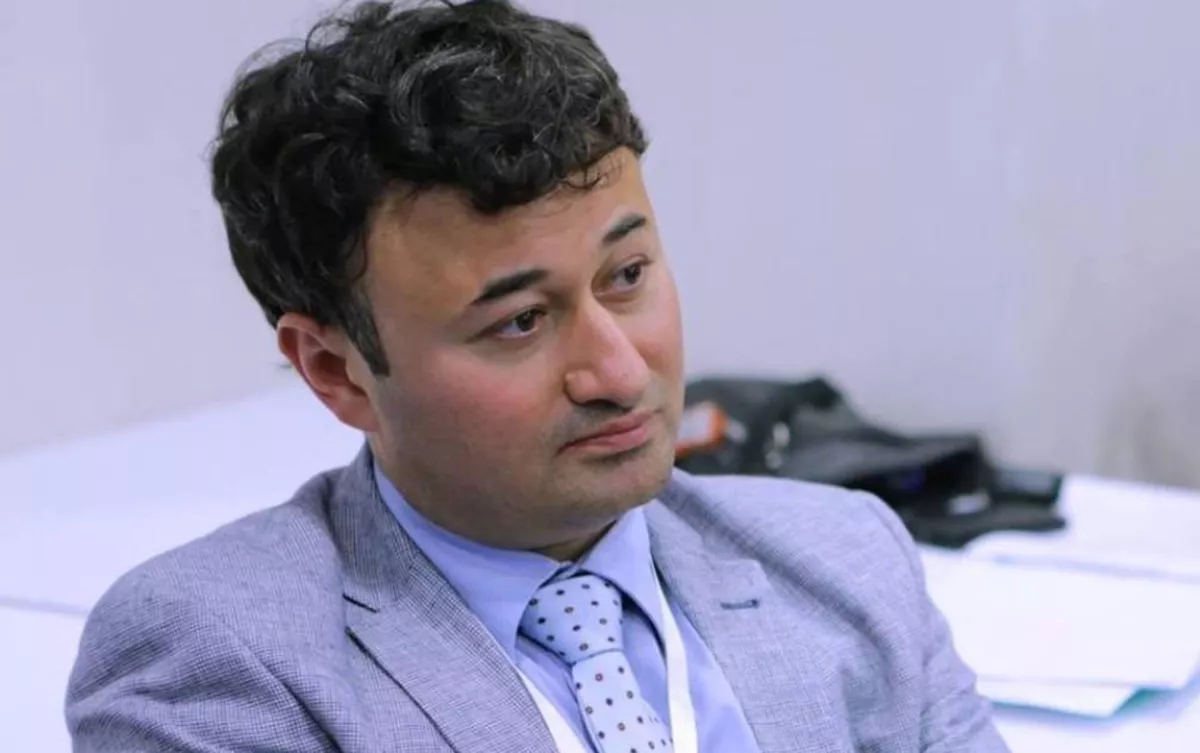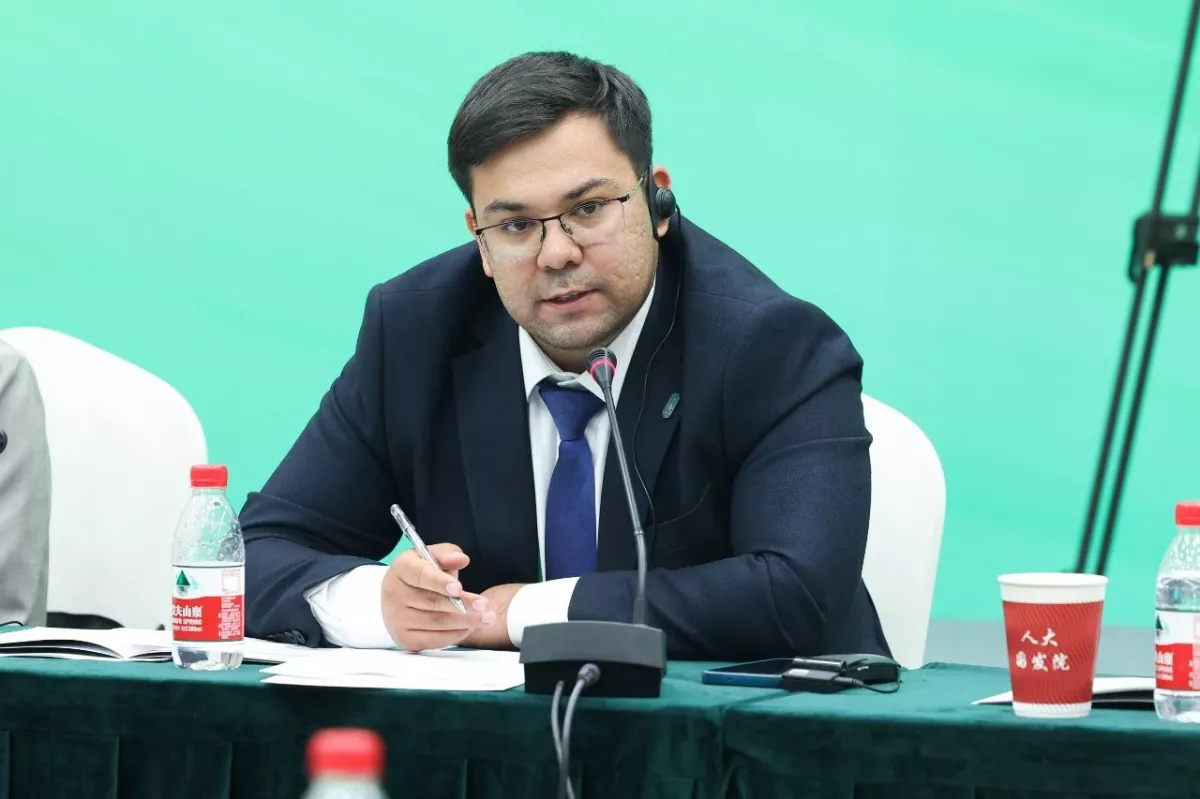Tashkent summit — the “unified 6” formula in action Expert opinion on Caliber.Az
It has been announced that Azerbaijani President Ilham Aliyev will participate in the Consultative Meeting of the Heads of Central Asian States on 16 November in Tashkent.
In an interview with Uzbekistan’s National News Agency, President Aliyev noted that this will be his third time attending the meeting as an honorary guest.
“Azerbaijan attaches special importance to the comprehensive development of collaboration with all countries in the region at the highest level. I believe that the strategic partnership and allied relations established between the countries of Central Asia and Azerbaijan on a bilateral basis, as well as our active political dialogue and reciprocal visits, play a key role in making this cooperation format successful,” the president emphasised.
Ilham Aliyev also expressed confidence that the 7th Consultative Meeting of the Heads of Central Asian States will mark a significant milestone in strengthening the centuries-old friendship among the fraternal peoples and in expanding multi-level cooperation across a wide range of fields.
What will the dialogue between Baku and the Central Asian states look like in Tashkent? And what will the presidents prioritise in their discussions? Caliber.Az asked experts from Central Asian countries and Azerbaijan to answer these questions.

Thus, Azerbaijani political scientist, professor, and doctor at the Hankuk University of Foreign Studies (Seoul, South Korea), Rovshan Ibrahimov, noted that President Aliyev first participated in the Consultative Meeting of the Heads of Central Asian States, which was held in Dushanbe two years ago.
“As we can see, relations between the Republic of Azerbaijan and the Central Asian countries are developing quite intensively in both bilateral and multilateral formats. Today, Central Asia is a group of five countries attempting to pursue major integration processes while also forming relations with regional and global powers. Recently, the C5+1 summit was held in the United States, and from political, economic, and other perspectives, the importance of Azerbaijan’s participation in this programme is quite clear.
Considering that the Caspian Sea is an internal water reservoir forming a conglomerate of countries and peoples around it, Central Asia and the South Caucasus share many common features in terms of cultural, ethnic, and religious aspects. Taking into account historical roots, as well as, importantly, the shared social space and mentality, and the similarity of economic structures, it becomes clear that a process is forming which the Assistant to the President of Azerbaijan — Head of the Foreign Policy Department of the Presidential Administration Hikmet Hajiyev — described as follows: ‘The 5+1 formula is turning into a unified 6.’ I believe the main agenda of the meeting will be Azerbaijan’s transition from observer status to a full-fledged member of this format, with all the consequent implications,” stated Ibrahimov.

Meanwhile, Uzbek political scientist, Master of Political Science, and Chief Specialist of the Department for Monitoring and Analyzing Reforms in the Fields of Security and Foreign Policy Bunyod Tillakhujaev, noted that the meeting of Central Asian leaders in Tashkent should first and foremost reaffirm the regional states’ commitment to the principles of mutual understanding, cooperation, and partnership against the backdrop of changes in the world order, geopolitical instability, and the growing challenges of energy and food security. In these conditions, coordinated actions and strengthened cooperation between the republics are not merely political goals but a strategic necessity.
“Therefore, it can be expected that the upcoming 7th Consultative Meeting will discuss a broad range of topics aimed at further strengthening interconnectedness in various areas. For example, for decades, water issues have been among the most acute problems, causing disagreements not only between states but also among peoples, and in my view, they will not be overlooked.
In this context, it is also important to highlight achievements already made. For instance, Uzbekistan and Tajikistan are currently cooperating on the construction of the Yavan Hydropower Plant on the Zarafshon River. Agreements have also been reached between Uzbekistan, Tajikistan, and Kazakhstan on a coordinated operating regime of the Bakhri Tojik reservoir during the growing season, and with Turkmenistan on the rational use of Amu Darya water resources. Additionally, cross-border issues have found solutions in recent years. Of particular significance is the signing, in March of this year, of an agreement on the tri-state border junction and the Khujand Declaration between Uzbekistan, Kyrgyzstan, and Tajikistan. For the first time since gaining independence, the entire perimeter of the countries’ shared borders has been legally defined, finally resolving a decades-long source of tension.
These achievements will undoubtedly serve as a foundation for further strengthening friendship and good-neighbourliness among the peoples, and in the long term, facilitate border-crossing procedures, which may also become one of the topics discussed at the summit,” the expert said.
In his view, the development of coordinated approaches among the region’s countries in foreign policy through “Central Asia Plus” formats could also become one of the main topics of discussion.
“I believe that, given the shifting centres of power in the world, it is important to continue developing these formats, which have already proven effective in relations with key external partners. At the same time, economic cooperation will undoubtedly be on the summit’s agenda. At this stage, I think it is necessary to further develop intra-regional trade, create mutually beneficial conditions for investment, and simplify procedures for the movement of goods across borders. It is also essential to actively promote industrial cooperation, establish and develop cross-border trade zones, and support joint transport, energy, and agro-industrial projects. It should be noted that for Uzbekistan, enhancing regional cooperation is a deliberate strategic policy, reflecting an understanding of the shared responsibility for the prosperity of the entire region,” the expert emphasised.
According to Tillakhujaev, Azerbaijan is regarded as one of the strategic partners of the Central Asian countries. Several projects are being implemented between the parties in the transport, energy, and economic sectors.
“Azerbaijan is a key link in the China–Central Asia–Caspian–Caucasus–Europe transport route. The Trans-Caspian International Transport Route (TITR) passes through Baku. In this context, it can be anticipated that issues related to this corridor will be discussed in Tashkent. It is possible that memorandums on investment and trade through the ports of Aktau and Alat may be signed at the summit.
Energy cooperation is also likely to be on the agenda. Uzbekistan plans to export its surplus electricity to Europe via Azerbaijan using the Trans-Caspian infrastructure. Clearly, achieving this goal will require a joint trilateral project with Kazakhstan and Azerbaijan, involving the laying of a deep-water cable across the Caspian Sea.
Overall, it should be emphasised that the leaders’ summit will serve as an important platform to consolidate the successes achieved and to develop coordinated steps for further strengthening the stability, security, and economic development of the entire region,” concluded Tillakhujaev.

Meanwhile, Kazakh political scientist and Candidate of Political Sciences, Sharip Ishmukhamedov, believes that the summit of Central Asian heads of state in Tashkent—or, as it is officially called, the Consultative Meeting of the Heads of Central Asian States—carries a much deeper significance than it might appear at first glance.
“At first sight, it may seem like an ordinary meeting of neighbouring leaders discussing issues of good-neighbourliness, cooperation, and education. However, looking deeper, these summits are far from simple—they address serious and sometimes unresolved issues on which the region’s future largely depends,” the expert noted.
According to him, the Tashkent meeting is a planned event, and the decision to hold it was made in advance, following the sixth summit held last year in Astana.
“Even then, Uzbekistan announced that the next meeting would discuss several fundamental topics, including mutual recognition of diplomas among Central Asian countries, student exchange opportunities, and the development of tourism. There was also the idea of introducing a unified visa for all five countries—similar to the Schengen visa—which could be tentatively called the ‘Tashkent visa.’ This would allow tourists to travel across the entire region, significantly boosting tourism revenues,” Ishmukhamedov explained.
However, according to the political scientist, the most significant and sensitive issue is the Treaty on Friendship, Good-Neighbourliness, and Cooperation in Central Asia:
“This document was first discussed in 2022, prepared in 2024, and has now been joined by almost all regional countries. Last year, it was signed by Kazakhstan and Tajikistan, and currently four states participate—Turkmenistan has not yet joined. This treaty effectively serves as the legal foundation for a future Central Asian Union, a coalition of countries committed to coordinating their internal and foreign policies and building a common strategy for regional development. Without the participation of all five states, including Turkmenistan, the union cannot function fully. In the 1990s, there were already three attempts to create a similar union, but all failed precisely due to a lack of consensus among the countries,” Ishmukhamedov said.
The political scientist expressed hope that the upcoming summit in Tashkent could move this issue forward: “The authority of President Mirziyoyev may help persuade Turkmenistan to join the treaty. This would create a solid legal foundation for the future Central Asian Union.”
The expert also expects that the issue of engagement with external partners will be addressed in the Uzbek capital:
“In 2025, the five Central Asian countries signed a Treaty of Friendship and Cooperation with China. The document has not yet been ratified, but the very fact that it is being discussed demonstrates Beijing’s growing influence in the region. In this context, Kazakhstan acts as a conduit for Chinese initiatives, which will also become a topic of discussion.”
According to him, one of the summit’s key issues will be defining common principles for Central Asia’s interaction with global powers—the United States, Russia, China, and the European Union:
“The countries of the region understand that it is difficult for them to conduct dialogue with global players individually, so it is necessary to develop a unified approach in foreign policy. I believe this issue will be the main focus of the summit.”
He also stressed that Kazakh President Kassym-Jomart Tokayev will likely remind his colleagues of Azerbaijan’s importance to Central Asia:
“Azerbaijan is the missing but crucial element in the region’s economic and political architecture, ensuring its independence, sovereignty, and security,” concluded Sharip Ishmukhamedov.
The expert also expects that the issue of engagement with external partners will be addressed in the Uzbek capital:
“In 2025, the five Central Asian countries signed a Treaty of Friendship and Cooperation with China. The document has not yet been ratified, but the very fact that it is being discussed demonstrates Beijing’s growing influence in the region. In this context, Kazakhstan acts as a conduit for Chinese initiatives, which will also become a topic of discussion.”
According to him, one of the summit’s key issues will be defining common principles for Central Asia’s interaction with global powers—the United States, Russia, China, and the European Union:
“The countries of the region understand that it is difficult for them to conduct dialogue with global players individually, so it is necessary to develop a unified approach in foreign policy. I believe this issue will be the main focus of the summit.”
He also stressed that Kazakh President Kassym-Jomart Tokayev will likely remind his colleagues of Azerbaijan’s importance to Central Asia:
“Azerbaijan is the missing but crucial element in the region’s economic and political architecture, ensuring its independence, sovereignty, and security,” concluded Ishmukhamedov.








